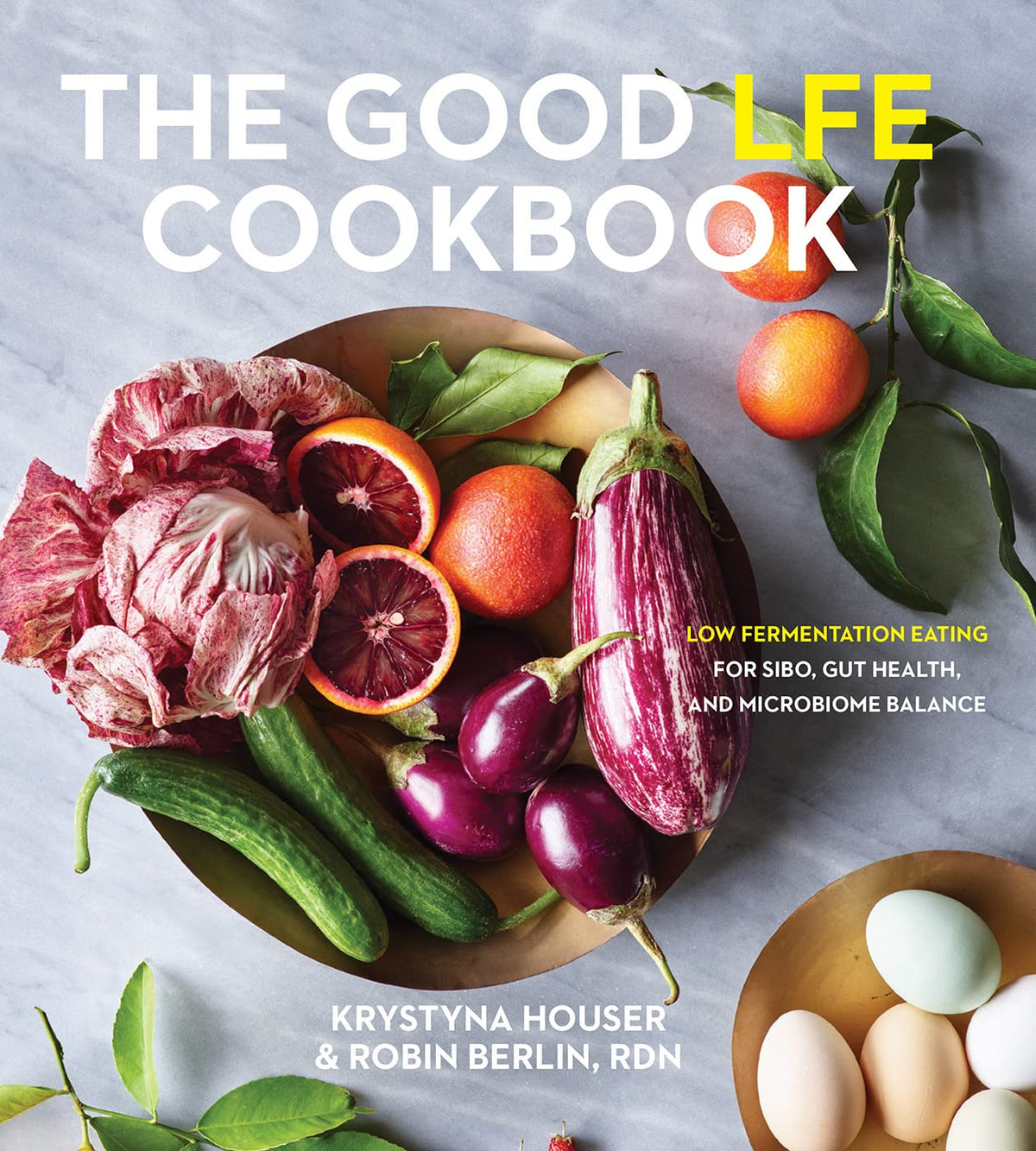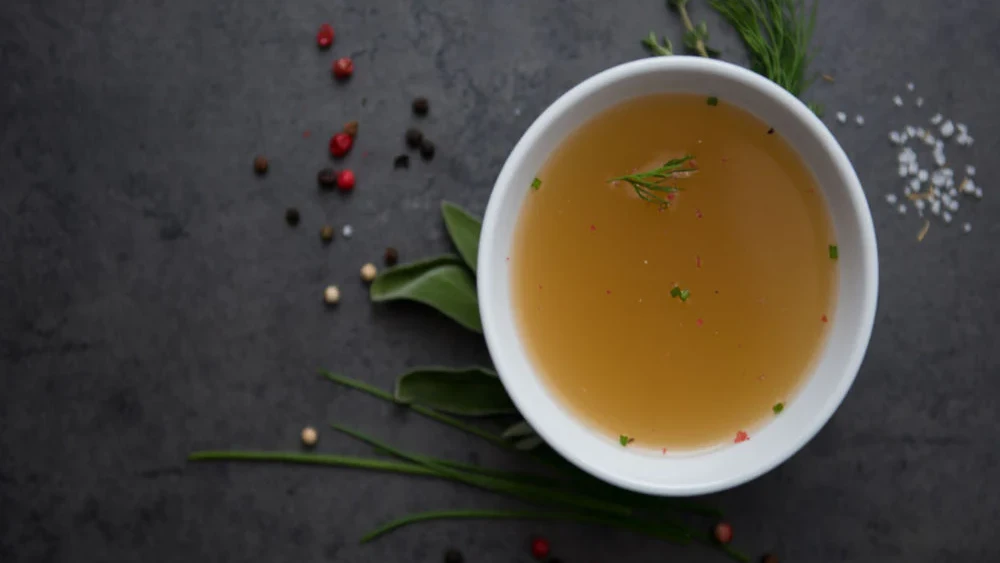Ingredients
- 3 pounds bones
- 3–4 quarts water
- 2 carrots
- 2 yellow onions
- 2 stalks celery
- ½ bunch parsley (omit for pregnant or breastfeeding women)
- 1 tablespoon peppercorns
- 2 bay leaves
- 10 stems thyme
- 1 tablespoon wine or rice vinegar
Directions
Preheat oven to 425°F (220°C). Place bones in a large stockpot and cover with cold water, bring to a boil then simmer for 20 minutes. Strain off water and rinse bones. This eliminates any impurities and keeps your broth from having an off flavor.
Cover a large sheet pan with parchment and spread bones in a single layer. Roast at 425°F (220°C) for about 1 hour. You want the bones deeply roasted, they should be a nice, dark brown. For a light, mild chicken broth you can skip this step, but both beef and pork bones need roasting.
Put roasted bones along with any brown bits from the roasting pan back in your large, now clean, stockpot. Carefully pour the rendered fat that is pooling in the bottom of the pan into a clean jar and freeze for later use*.
Cover bones with water and add vinegar. Use just enough water to cover bones with 2–3 extra inches above.
On medium heat bring to a low simmer (do not boil) and let cook for at least 8 hours, and up to 24. (12 hours is perfect for chicken broth. Beef bones should cook overnight if possible.) Foam will rise to the surface. Skim off with a large spoon.
In last few hours of cooking, add vegetables and aromatics. Finish cooking. Strain into a large wide vessel. Place bowl or pot into sink with ice and water ¾ up the side. Stir for 10 minutes to bring to room temp.
Ladle into clean, quart sized jars. Will keep in fridge for up to a week, and in freezer for many months.
Recipe Note
Note: the original recipe that appeared in the first edition of the cookbook was missing some preparation instructions and is listed correctly here as well as in all subsequent printings.
*Rendered beef fat can be used for frying and sautéing. Rendered chicken fat can be used as a spread on toast with salt, for sautéing, to caramelize onions if there are no vegetarians joining you for dinner, as a substitute for olive oil in roasted potatoes, as a butter replacement for lactose-free mashed potatoes, or to make a roux for a lactose-free gravy.



